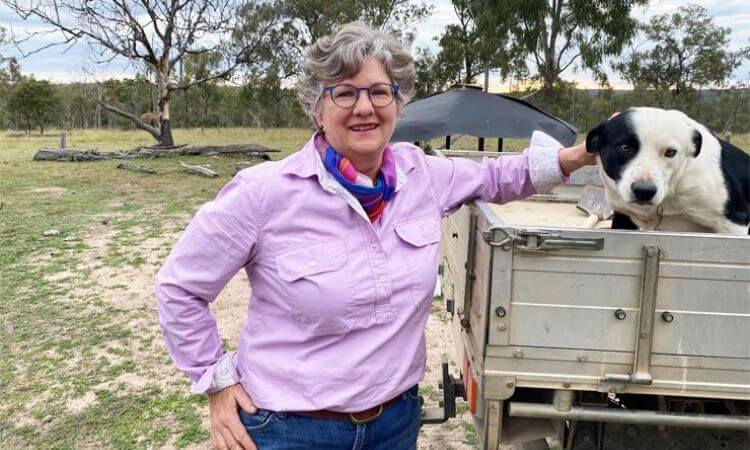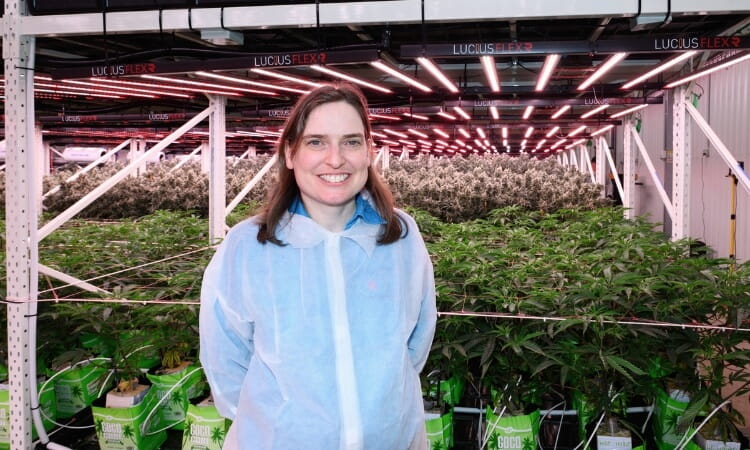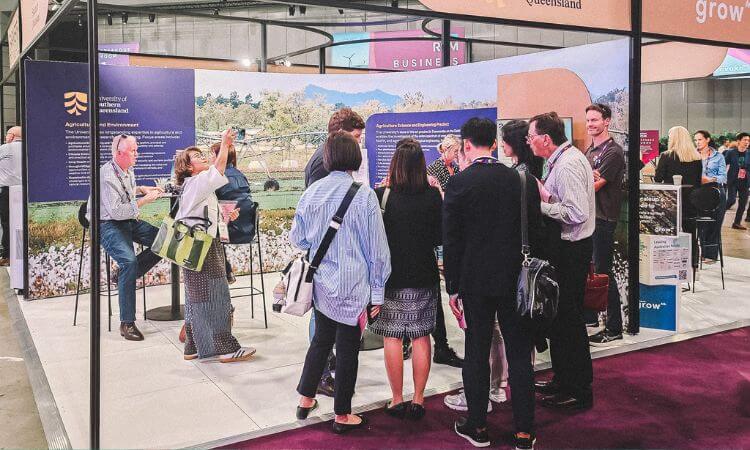Championing change: Regional advocate mustering a sustainable agricultural future

Georgie Somerset has long been a passionate advocate for Australia’s agricultural industry, with a sharp focus on sustainability, innovation, and the future of regional communities.
From agribusiness and climate resilience to renewable energy, she’s been at the forefront of change – championing initiatives that strengthen rural industries and support communities across the country.
Through her work on the boards of major organisations like the Royal Flying Doctor Service and her contributions across the not-for-profit, government, and industry sectors, Georgie is a leading voice shaping the future of agriculture in Australia.
Now, she’s set to join the panel for the UniSQ Thought Leadership Series event – The Future of Regional Development: Building Resilient Regions – at the UniSQ Toowoomba campus on the evening of 8 May. Register now to attend the free event.
We recently caught up with Georgie ahead of the event.
As past General President of AgForce Qld, what are the challenges and opportunities for the rural sector, particularly for women? How is AgForce addressing these and building resilience in regional communities?
The rural sector is constantly adapting to change and AgForce supports its members through a range of measures, including long term policy reform. For women, they are often the strategic thinkers enabling change within businesses and community organisations. It is so important to support our industry representative bodies who are engaged in the long form work, as this is what will contribute to long-term industry resilience.
You’ve served as president of the Queensland Rural, Regional and Remote Women’s Network. What do you consider the most significant changes you've seen in the role of women in agriculture over the past decade?
Today, it is not unusual to see a team of women in all sectors of agriculture, as well as leaders across the industry. The genuine recognition of women’s role has transformed in the past three decades. There is still a shortage of women in senior executive leadership roles, and we need to focus on the pipeline for these roles.
Working in organisations like the Queensland Children’s Hospital & Health Service and the Royal Flying Doctor Service, what have you learned about the intersection between rural healthcare and strong regional communities?
Rural health care is critical for strong regional communities. Liveability influences the potential employment pool, and access to healthcare impacts this. Alongside its retrieval work, the RFDS also provides primary health, the dental van, and mental health support for many communities across our state – some which have no other option for health care provision
You were named one of AFR’s 100 Women of Influence for your advocacy in agribusiness leadership. What more needs to be done to encourage and support women in leadership roles across regional industries?
It is critical we continue to mentor and sponsor women through our organisations and businesses – their impact and influence in leadership is significant and will strengthen rural industry. It is the responsibility of all leaders to ensure they are bringing through the ‘next crop’ – whether this is the local community committee or industry board chair and all levels in between. I personally invest in growing leaders and encourage others to do so, too.
You were appointed a Member of the Order of Australia for your service to primary industries and rural women. What motivates you to continue championing these causes and how do you see your leadership evolving as regional Australia faces new challenges and opportunities?
I am increasingly passionate about ensuring inland Australia is not only heard but respected for the role it plays in our Australian identity, our economy and our landscape. I am motivated because I know it makes a difference when you include diverse viewpoints, when you listen to community needs and work with community, and I know how much regional Australia has to offer. My leadership is more strategic than ever, and I don’t underestimate the influence of being in rooms where people don’t expect to meet a beef producer. I am also motivated by the leaders emerging across regional Australia – it’s exciting!
What are the most important priorities for ensuring our regions remain vibrant and resilient in the decades ahead?
Our regions rely on their people – it is critical we continue to invest in people, as they will lead change, adaption and adoption. We must ensure we truly serve our regions, that we share the investment across regions, not picking ‘winners’ based on socio-political geographic constructs, but on the need identified in a genuine co-design model.
What advice would you give the next generation of regional leaders, particularly young women looking to make a difference in their communities?
Take advantage of the opportunities on your doorstep – start with turning up for your industry and your community, stretch yourself to represent your industry and community, be curious, ask questions, seek support and mentorship, and see setbacks as a chance to learn. Surround yourself with people who support your leadership vision and take your seat at the table.
Register today for the upcoming UniSQ Thought Leadership Series event.


